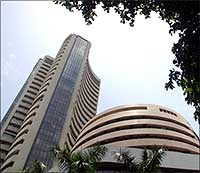 When Samvat 2065 started on October 28, 2008, the mood was distinctly downbeat.
When Samvat 2065 started on October 28, 2008, the mood was distinctly downbeat.
With revered financial giants disappearing in the blink of an eye and the global economy teetering on the brink, markets worldwide had gone into a tailspin. And the Indian markets responded like a falling knife, wilting under the force of gravity from a peak of 21,000 to the trough of 8,000.
The Sensex began Samvat 2065 with renewed optimism, gaining 5.8% at 499 points on Muhurat day (October 28, 2008).
The unprecedented global recession had forced the central banks into a fire-fighting mode, cutting interest rates and infusing liquidity into the economic system. The global markets began to find their feet. And the Indian markets were among the leaders.
The six months of consolidation were painful for the Indian markets, wherein they ranged between the 8,000 and 10,500 mark. The markets actually took off only in March, with green shoots beginning to appear slowly but surely. It has been a vertical climb thereafter. And the electoral results were a game changer.
The Sensex hit the upper circuit, for the first time ever, twice on May 18 on the back of panic buying, triggered by the absolute verdict favouring a Congress-led government.
The markets have not looked back thereafter, climbing each technical barrier with elan as we now stand comfortably perched beyond the 17,000 mark.
The Sensex ended at 17,323, up 128 points on Friday. In the process, the index closed Samvat 2065 with stellar gains of over 100 per cent (8,813 points).






